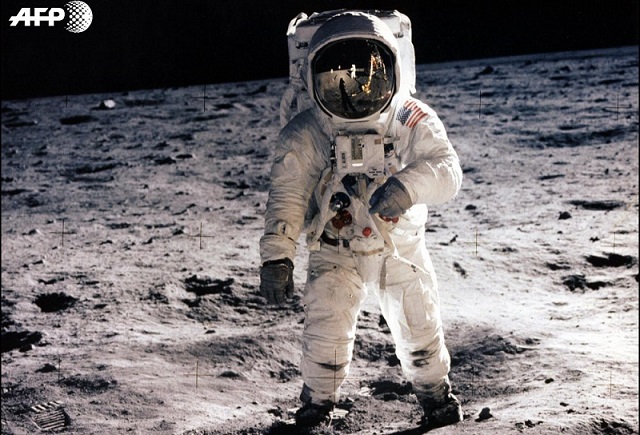
Remembering and contrasting events of 50 years ago in America as witnessed by a university student in Uganda
COMMENT | Harold Acemah | July 20, 1969 will always remain alive in my memory as a momentous day on which President John Fitzgerald Kennedy’s dream of landing a human on the moon was fulfilled. On that day, the Apollo 11 spaceflight successfully landed humans on the moon at exactly 20:17 Greenwich Mean time (GMT). The crew was commanded by American astronaut Neil Armstrong who, six hours 39 minutes later, at 02:56 on July 21, 1969 became the first person to set foot on the moon from the Apollo Lunar Module Eagle. Module pilot Buzz Aldrin followed him 19 minutes later.
What a day it was for me and millions of Ugandans who were glued on that day to Uganda Television (UTV) and Radio Uganda, both of which carried the event live.
In 1969, I was a final-year undergraduate student at the former University of East Africa, Makerere College and can vividly remember what transpired on that great and historic day for humankind as a whole.
According to an article published in The Washington Post, despite uncertainty about the moon project, “it benefited from a clearly defined goal.” In May 1961, President John F. Kennedy asked America’s National Aeronautics and Space Administration (NASA) to put a man on the moon and bring him safely back to earth before the decade was out.
Then in September 1962, Kennedy gave his famous “We choose to go to the moon” speech at Rice University in Houston in which he said, inter alia, that the U.S. “chooses to do these things in space not because they are easy, but because they are hard.”
The cost of sending a man to the moon was a staggering US$20 billion. The moon is on average 384,400 kilometres from earth (its orbit around Earth is elliptical. At perigee — its closest approach — the moon comes as close as 363,104 kilometers. At apogee — the farthest away it gets — the moon is 405,696 km from Earth) Up to 400,000 workers were involved in the project led by Werner von Braun, a German prisoner of war who was forcibly taken to USA after World War II. He designed the huge Saturn V rocket which launched the Apollo 11 spacecraft on a three-day flight to the moon. What an amazing story!
The fairytale like story of a man landing on the moon for the first time in human civilization was aptly summarised by American historian Douglas Brinkley in a book titled, “American Moonshot: John F. Kennedy and the Great Space Race.” He writes, it “takes a rare combination of leadership, luck, timing and public will to pull off something as sensational as Kennedy’s Apollo moonshot”.
In a nutshell, the secret of Apollo’s spectacular success was leadership, luck, timing, availability of resources and political will. These are sadly lacking in Uganda and most African countries, especially leadership.
Good, effective, inspirational and selfless leadership, such as the type exemplified by John Kennedy, cannot be achieved by the barrel of the gun or bought with trillions of shillings stolen from wananchi or obtained by rigging elections or by manipulating a docile, naive and functionally ignorant population. If it were possible, many bogus and mediocre African leaders would be superstars.
The Apollo 11 story illustrates the importance of science and technology in national development and the need for government to invest substantially in the sector, instead of paying lip service, as the sole candidate has regularly done to hoodwink wananchi. The colossal amount of money the government of Uganda squanders annually on the military, regime survival, and infrastructure would be much better spent on promoting and teaching science subjects at Uganda’s schools, tertiary institutions and universities.
Launching moonwalk the dance
Our celebrations to mark the momentous occasion continued from campus to a popular joint for Makerere University students at Wandegeya called Capital Bar & Restaurant which did roaring business on that day. To crown it all, I and my friends took a taxi at the midnight hour to Mengo to dance the night away at one of Kampala’s popular nightclubs of the 1960s, incongruously named New Life Club.
Little did we know that the resident band of the club, Viperes Jazz Band, led by Kaumba Raphael, would release and showcase the band’s latest rumba and soukous compositions to commemorate moon landing and, in addition, launch a new dance for the occasion appropriately called “moonwalk” which was ably demonstrated by a Congolese dancer nicknamed, “Souziman Apollo 11.”
On a personal note, July 20, 1969 brings to mind many pleasant memories of friends, classmates and fellow citizens, many of whom have sadly passed on and are, I hope, with the Lord in heaven, including, Albert Yobo, Edward Keronega, Allan Opidi, Amos Etima, E S Atieno-Odhiambo, Daudi Taliwaku, Franco Nyalwopol and George Obwona. I take this opportunity to pay tribute to all of them, but above all thank God for their lives and for their abiding friendship. May their souls rest in eternal peace!
****
Harold Acemah is a retired diplomat who served at several levels in Uganda’s Foreign Service
 The Independent Uganda: You get the Truth we Pay the Price
The Independent Uganda: You get the Truth we Pay the Price


